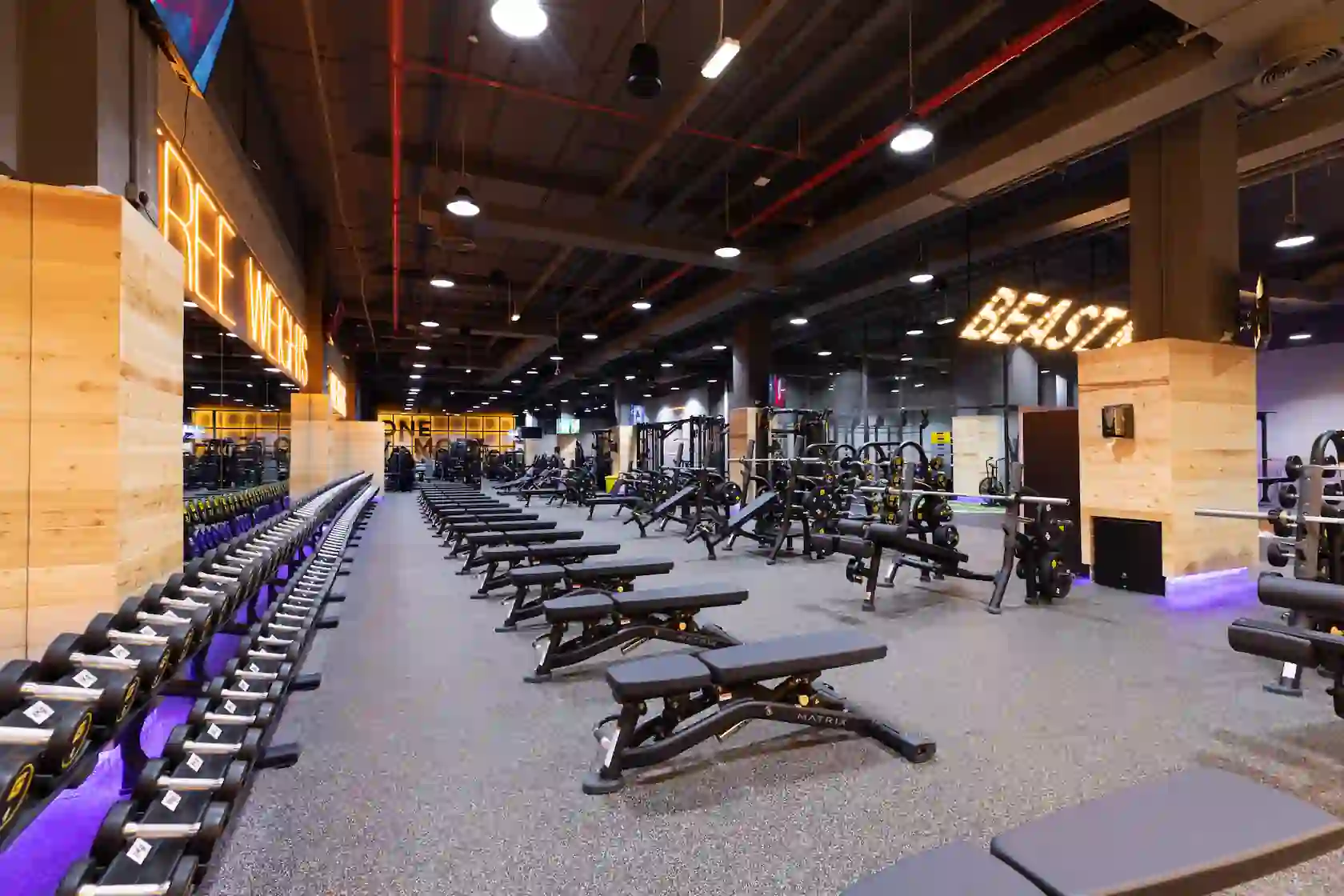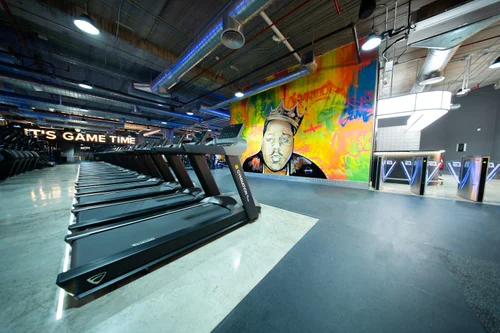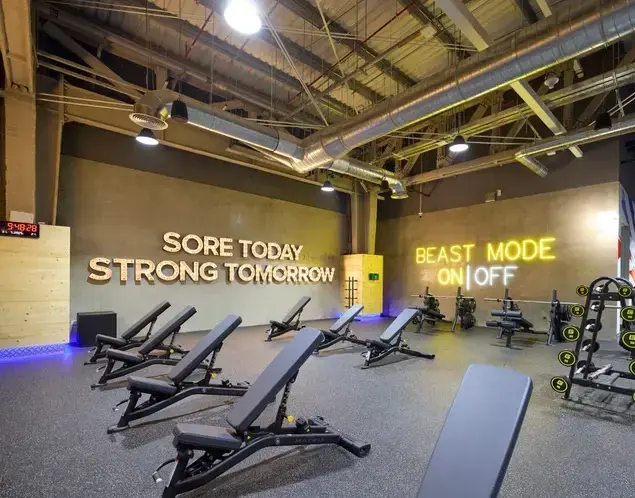My Marathon Taught Me to Quit

SIGN UP FOR YOUR FREE DAY PASS TODAY!
"I want to run a marathon," I boldly declared to my editor in late July—just three months before the race. Her skeptical expression told me she wasn’t entirely convinced.
"If you’re sure you want to," she eventually replied.
I wasn’t under the illusion that running a marathon would be easy. But when Every Woman’s Marathon invited me to participate in their inaugural race, it felt like the ultimate challenge.
Extended race times? Check. A flat course? Check. And most importantly, a welcoming, judgment-free space designed for women? Triple check.
The event seemed like a safe starting point for anyone tackling 26.2 miles, which may explain why 40% of the 7,500 participants were first-time marathoners.
But the staggering distance is still daunting—especially for a beginner managing chronic illness.
Most seasoned runners warn that training for a marathon in three months is not only risky but borderline impossible. Yet, I was running fueled by sheer determination (and perhaps a touch of naivety).
Having survived two strokes and a recent surgery to remove my right eye, I was no stranger to the incredible resilience of the human body.
After spending years bedridden due to illness, the thought of reclaiming my strength by completing such a monumental goal became an obsession.
Outsiders likely saw my endeavor as unrealistic, but with three months of training ahead, I threw myself into the challenge. Here’s what I learned.
The Journey Begins
Marathon training turned out to be surprisingly expensive. Apart from the registration, travel, and lodging fees for the race itself, I shelled out money for a $18-per-month training plan through Runna, subscribed to Strava for $80 per year to track my progress and running routes, and invested in essentials like running shoes, compression socks, and a phone armband.
Despite being aware of the importance of nutrition for runners, I took a somewhat lackadaisical approach to it initially, focusing mostly on hydration and meeting protein goals.
Little did I know, this would come back to haunt me down the line.
Month One
I began training on August 1 in Tucson, AZ. Even at 7 a.m., the desert heat was merciless at 95°F. With high hopes, I set off on a familiar stretch of road, expecting to cover a couple of miles with ease. It didn’t go as planned.
"Actually, what just happened?" I documented in my notes, frustrated after barely making it half a mile.
But instead of giving up, I shifted my runs closer to home, opting for laps around my apartment complex and earlier start times to escape the heat.
When I finally managed my first mile, a renewed sense of optimism emerged.
Still, the overwhelming distance of a marathon loomed large.
The thought alone felt impossible, and I found myself struggling to enjoy running during those early weeks.
Yet, the discipline of training started spilling over into other areas of my life—I went to bed earlier, ate more thoughtfully, and made time for self-care.
Month Two
The second month brought new challenges as I pushed myself harder. I managed to run two to three miles per session, but it never felt like enough.
Fatigue, heat, and time constraints constantly worked against me. "I’m trying to feel proud, not guilty," I noted as the month came to an end.
Month Three
The final stretch of training was marked by setbacks caused by energy crashes linked to my undiagnosed autoimmune condition.
Entire days of rest became necessary, which meant I lost progress at times, but I prioritized listening to my body.
Despite this, I ended the month with a sense of pride, marveling at how far I’d come since those grueling first runs. However, it became abundantly clear that I wasn’t marathon-ready.
The Decision to Quit
The word "quit" often carries a negative connotation, but for me, choosing to stop the marathon was an act of self-preservation. I knew my body wasn’t prepared, and pushing forward would likely lead to long-term harm.
Looking back, it’s easy to see that my goals had been overly ambitious from the start. Training for a marathon is a colossal undertaking for anyone, but even more so for someone managing chronic illness and unpredictable flare-ups.
Still, this experience taught me that setting unrealistic goals isn’t entirely bad—they can lead to personal growth.
Reframing my objectives, giving myself more time, and prioritizing rest were lessons that would prove invaluable.
What I Wish I’d Known
After deciding to quit, I turned to the experts at Every Woman’s Marathon to better understand where I’d gone wrong.
The Training Timeline
According to running coach Alysha Flynn, a beginner should ideally train for seven to twelve months to properly condition both the body and the mind. My three-month timeline, by comparison, had been highly unrealistic. "Rushing through training doesn’t allow you to properly adapt to challenges or setbacks," she explained.
The Importance of Nutrition
Marathon nutritionist Kristy Baumann emphasized the importance of fueling both before and after runs. Without adequate carbohydrates and hydration, energy crashes are inevitable.
She recommended incorporating easy-to-digest carbs pre-run, staying vigilant about electrolytes, and focusing on post-run recovery with protein and carbs.
While reflecting on these insights, I felt embarrassed about my haphazard approach but motivated by the idea that a marathon could one day be within reach—with the right preparation.
Attending the Marathon
Instead of participating in Every Woman’s Marathon, I attended as a supporter. The stories I heard from other participants were inspiring—one woman planned to cheer on her sister, who was pregnant, while another saw the marathon as preparation for an upcoming race in London.
Watching women from all walks of life take on this challenge was exhilarating. I couldn’t help but wonder if I would find the discipline and resilience to join them someday.
This experience taught me so much more than running techniques. I learned the value of setting realistic goals, listening to your body, and giving yourself grace when plans don’t go as expected.
While I may not have crossed the finish line this time, one thing is certain—I will keep running. And when it’s time to revisit my marathon aspirations, I’ll be better prepared to tackle those 26.2 miles.
On race day, the atmosphere buzzed with energy as women from diverse backgrounds entered their designated starting areas.
I couldn't help but reflect on whether I would ever possess the discipline, determination, or resilience shown by the lead runners.
Yet, even those crossing the finish line later moved with purpose and happiness, making their incredible efforts feel just a bit more achievable.
I’m not sure if I’ll ever run a full marathon in my life, but I do know it would take me far more than three months to prepare.
For now, I’m thankful for the experience, which helped me genuinely enjoy running, develop healthier habits, and truly listen to my body.
Quitting doesn’t mean failure, and if you ever need proof of that, three months of marathon training is a great reminder.
Source: popsugar
The opinions shared in the GymNation blog articles are solely those of the respective authors and may not represent the perspectives of GymNation or any member of the GymNation team.
GET YOUR FREE TRIAL TODAY





























































































